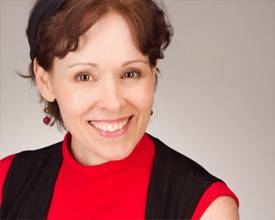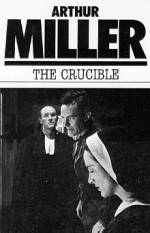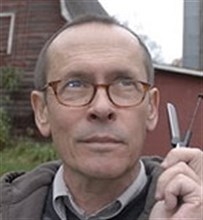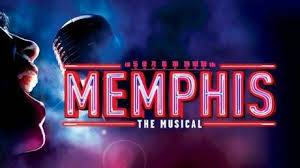Parkland Theatre Artistic Director/Program Manager Joi Hoffsommer is a respected and active member of the C-U theatre community, of that there is no question. In addition to her career at Parkland, she is a member (and past board-member) of the Celebration Company at the Station Theatre and participates in Pens to Lens, just to name a couple off-campus sightings. Many aspects of her professional and personal life have been dedicated to stagecraft, and as she decided to retire at the end of this year, her presence within the community will change. While she tells her students she “may just reinvent” herself, before she makes any changes, she will leave us with a parting gift: the 2017-18 Parkland Theatre season, which has been curated “just to make sure everybody is really, really happy with it.” From an enthusiastic student reception after the pre-announcement, it seems like Ms. Hoffsommer has achieved her goal.
The Theatre Artistic Director also looks at a rolling schedule of 2-3 years – the average length of a Parkland Student’s time at the community college – to ensure that Theatre Department students will be exposed to a well-rounded slate of productions, and to provide variety to the patrons, too.
The Crucible by Arthur Miller – directed by Mathew Green – September 28th-October 8th
A modern classic written as an allegory for the intense Communist witchhunts of the 50s, this serious treatment of the Salem Witch Trials inspects how lies can spark a movement that costs lives. Seems timely to re-examine an artist’s reaction to government-sanctioned xenophobia? Oh, yeah, and this work is seen as central to the American canon, so no matter how you lean, it’s a play that deserves to be produced and seen.
Much Ado About Nothing by William Shakespeare – directed by B.J. Gailey – November 9th-19th
Another classic, but this time of the world-class variety. In recent years, C-U has had the chance to see an opera adaptation of this story, and before that was a new film adaptation by Joss Whedon. A much lighter comedy, it still manages to magnify the mishaps that occur when important individuals deal with each other in half-truths and refuse to be transparent.
Only You by Timothy Mason – directed by Gennie Applebee – February 8th-18th
The 27th annual student production was pitched by the student director, and falls in line behind Much Ado. A period piece, set in the 80s, it’s another comedy about love in all its various permutations. Honesty has an ambivalent presence, but an offstage character named “Big Voice” serves to guide the action, whether he’s wanted or not. Hmm. Additionally, some reviews I’ve read cite the casual misogyny of the era of the Valley Girls as very visible.Memphis by David Bryan and Joe DiPietro – director TBA – April 5th-22nd
Spring’s big Broadway-style musical will be a more contemporary play; this 2009 work was first performed by amateurs with special permission right here in Champaign-Urbana at the 2013 Illinois High School Theatre Festival. Race, privilege and art are deconstructed as white DJ Huey begins playing black music during the early 50s and faces challenges having an interracial relationship with a singer he is promoting. Also based on real people and events, again we have art imitating history repeating itself.
I didn’t even realize how cohesive this quartet was until I sat down and wrote all that. Which is too bad, because I missed a chance to really look at it while I was chatting with the ladies who are responsible for it. When I heard that Ms. Hoffsommer’s role would not be replaced, I knew there would be questions about how the program will continue. With that in mind, I got to speak with both her and the Chair of the Fine & Applied Arts Department, Julie Weishar. Following is an edited version of our conversation, condensed and slightly rearranged for clarity.
 SP: This seems like a very balanced season: comedy, drama, classics, contemporary. When it comes to choosing, is it all Joi? Or Julie, do you have a hand in it?
SP: This seems like a very balanced season: comedy, drama, classics, contemporary. When it comes to choosing, is it all Joi? Or Julie, do you have a hand in it?
Julie Weishar: I was part of the team. Joi pitched the plays, our theatre team talked about it, talked about slots and that kind of thing.
 Joi Hoffsommer: That’s actually a fairly regular way to do it. I would sometimes have 2-3 possibilities per slot, and we would talk about why one of them might be better than another. Pros & cons.
Joi Hoffsommer: That’s actually a fairly regular way to do it. I would sometimes have 2-3 possibilities per slot, and we would talk about why one of them might be better than another. Pros & cons.
SP: With everything changing, I’m sure there’s a plan in place – will you let us know what’s in store?
Weishar: Sure, we have quite a talented and highly qualified staff and part-time faculty. And that group will take over temporarily until such a time as we have the budget to replace the Theatre Artistic Director and Program Manager full-time faculty position.
SP: So, Joi, what are your duties that they’ll be taking over? What does the TADPM do on a day-to-day basis? You put together the season and oversee the productions, and…
Hoffsommer: I teach a lot!
Weishar: They’ll need to cover classes, but also mentoring and supporting students through the process, helping them learn the direction they want to go, and preparing them to transfer.
Hoffsommer: And helping them see what their strengths are.
Weishar: All of that, and all the tasks related to Artistic Directorhood and Productions and all of those kinds of things.
SP: So what kinds of things are those? Do the Theatre productions collaborate with the Art department for scenery and costumes?
Hoffsommer: We have our own costume shop and costume shop manager, Malia Andrus. We’re very lucky, and she takes care of the shop, coordinating with designers if they are not her. Our scenic shop has a full-time manager, Dave Dillman. Brian Morgan is our Facilities & Technical Director, and he manages the design, looks at the proposals, costs them, makes sure they can be dealt with in the time and budget available. We really have a system that works pretty well and should continue to work well.
SP: All the different production departments: with you here, is it that all the managers would touch base with you, Joi? You coordinate?
Hoffsommer: Yes, it’s a real collaborative process.
Weishar: And we’ll continue with that. It’s a nice working group, we have regularly monthly meetings, production meetings, meetings with students…
SP: Will there be more part-time positions taken on, or will it just be “do more with less”?
Weishar: All hands on deck! If needed, we have put out an advertisement for our part-time faculty pool. If needed, we can draw from that. We have to look, of course, at what we need for summer and fall in terms of faculty.
SP: So will you, Julie, have a direct hand in the process of overseeing the productions?
Weishar: Well, I’m the department chair, so I’ll be doing whatever is needed of me, I sit on the Theatre Board, and I’m part of the Theatre Team. My main job is trying to provide for the board and make sure the faculty and staff in theatre get what they need so they can produce good theatre.
SP: So it sounds like with such a collaborative staff, everything should go well. What would you like the public to know about the transition and your plans for the future?
Weishar: What we really want to be clear about is that we’re here. We will be here. We are very committed to theatre.
Hoffsommer: Striving for excellence does not stop.
Weishar: No. We will make whatever work that we need to, we’ll get through these tough times, and we will support students and put on quality productions. We are not going away, the theatre has not been “downgraded”…
Hoffsommer: We don’t want anyone to think that what they come to see will be any less.
SP: Joi, what are your goals for providing for the students next season?
Hoffsommer: I think they’re going to get an amazing potential for the students in all the productions, not just from a performance aspect, but in design, or being able to learn about the range of genre and style. I think the different directors are going to do cool stuff with these productions.
SP: What else would you like the public to know?
Weishar: It’s going to be an exciting season, we hope people will come out.
Hoffsommer: And I’ll be here, as a patron, you know that.









 The Crucible by Arthur Miller – directed by Mathew Green – September 28th-October 8th
The Crucible by Arthur Miller – directed by Mathew Green – September 28th-October 8th Much Ado About Nothing by William Shakespeare – directed by B.J. Gailey – November 9th-19th
Much Ado About Nothing by William Shakespeare – directed by B.J. Gailey – November 9th-19th Only You by Timothy Mason – directed by Gennie Applebee – February 8th-18th
Only You by Timothy Mason – directed by Gennie Applebee – February 8th-18th